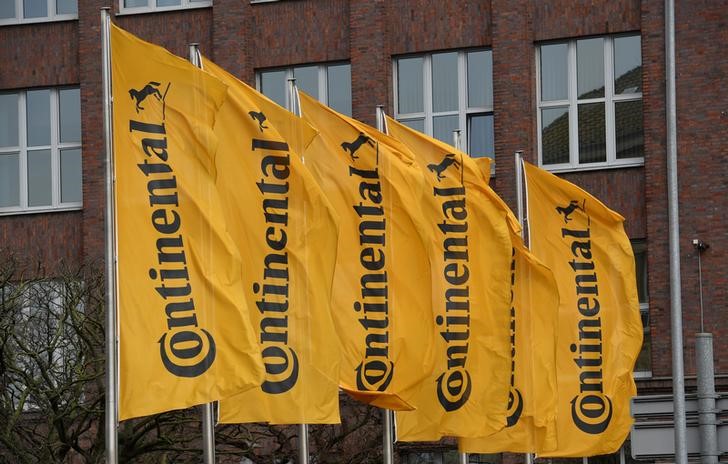This post was originally published on this site

Investing.com — Shares in Continental AG (ETR:CONG) jumped on Wednesday after the German tire maker said it expects to post an improvement in earnings during its 2023 financial year as the automotive sector recovers from supply chain and logistics disruptions.
The German auto parts manufacturer projected that adjusted profit before interest and tax margin during the current 12-month period will come in at about 5.5% to 6.5%, up from 5% in 2022. Bloomberg consensus forecasts had put the number at 6.11%.
Continental said its estimates are based off an anticipated rise in global production of passenger cars and light commercial vehicles, as well as cost-cutting measures.
However, the company flagged that it sees “significantly higher costs” for materials, wages, and salaries as well as energy and logistics weighing heavily on annual income. In total, these expenses are estimated to be around €1.7 billion (€1 = $1.0542).
In the medium term, Continental is aiming to achieve consolidated adjusted pre-tax and interest income of 8% to 11%.
“[W]e know that we need to continue improving if we want to meet our mid-term targets, which is why we are determined to increase our earnings, said chief financial officer Katja Dürrfeld in a statement.
Analysts at Oddo called the outlook “slightly more confident” than had been initially feared following Continental’s decision to slash its 2022 profit guidance in January. At the time, the business had cited the impact of COVID-related delays at its operations in China on cash flow at its key ContiTech division.
But adjusted earnings before interest and taxes of €1.95B last year were in line with forecasts, while annual sales of €39.41B beat analysts’ expectations. Continental noted that the results were weighed down by a “challenging” macroeconomic environment, particularly from the situation in China, semiconductor shortages, and the war in Ukraine. It was also hit by additional costs of around €3.3B resulting from higher input expenses.

